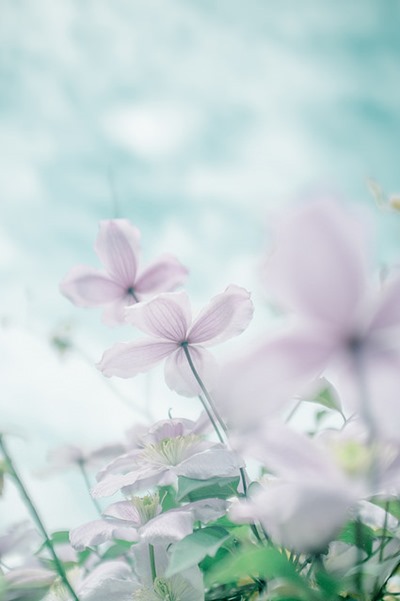Love Your Introvert Self, and Bring more of You to the World
-
After a couple of hours at social event, do you get tired or get energized?
-
When you feel drained, do you prefer to be alone with other people?
-
Do you prefer others to send you messages, or call you directly on the phone?
My answer is yes to the earlier part of all 3 questions. I am an introvert – a fact I’d struggled in many years to accept.
When I was little, I spent most of my time with my grandparents, daydreaming, watching my grandfather paint, helping my grandmother with her little yogurt shop. I was a quiet child. And my grandparents didn’t want me any other way.
One day, the quiet kid went to school. After the first semester, my first grade teacher wrote in my evaluation notebook that I was too “timid and shy.” That was the first time I learned that there was something not okay with my mellowness. Throughout my school years, that lesson got imprinted more and more. You know, the cool kids were those who knew everyone and everybody knew them, who spoke up and shone in the spotlight, who effortlessly made others laugh. Everybody liked them and predicted for them a bright future. I, too, wanted to be liked too. And my parents, too, wanted me to be successful. So I did my best to be one of those cool kids.
I started “participating”. I went to big parties when I just wanted to stay home by myself or have dinner with a friend. I dragged myself to networking events, despite that constant small talks bored me out of my skull. I forced myself to be chatty, even when I just wanted to be left alone. I was anxious about my gregariousness and try to impress people all the time. Years after years, I was on a highway to become somebody.
I didn’t now that I was skating on thin ice. As I fought against my temperament and stretched away from my natural environment, my energy became depleted. The more I rejected my true self to be good enough to avoid loneliness, the more lonely I became. After all these years, I’ve finally found the answers. I want to share them with all the quiet ones out there.
Whenever we heard the word “introvert” we tend to imagine a shy, quiet, socially awkward “nerd” who never leaves his room except to go to the toilet, and is left alone at Homecoming party. Hence, all the negative associations with introversion and and positive ones with extroversion arise.
Most people do not understand that introversion and extroversion are simply two different ways human beings react to stimuli. While extroverts react well to higher stimuli, introverts prefer lower stimuli. “React well” here I meant the state of healing, gaining energy.
In a social events, an extrovert bounces off other people’s energy and the longer he stays in the party, the more charged up his psyche gets. Of course he won’t party forever because his physical needs will eventually set in. But his mental and emotional energy is getting filled.
In the contrary, an introvert may enjoy the vibe of a social gathering. However, as she reacts in the opposite way to this high level of stimuli, her psyche slowly becomes drained. At some point, she wants to leave the place and come home to curl up on her bed with a cup of hot tea and her favorite book.
It is really that simple.
Is introvert born or made? Researches have found there is a high chance that we are born with this temperament. How one reacts to stimuli is controlled by a potent organ inside the brain called the amygdala. Little baby who cries and wiggles at strange environment have high chance of becoming introvert in the future; while the “extrovert baby” remains silent and comfortable because his brain is unmoved to novelty. There are also cultural and environment factors that shape our personality but we won’t get into it here. We simply need to know that many times in our lives, we don’t choose our stories. In one way or another, our stories choose us and we need to keep our arms open.
I love how Susan Cain called introverts “the sensitive ones” in her wonderful book Quiet. From our ways of dealing our sensitivity, all else springs: how we experience life, how we choose job and handle work, how we build relationship, and how we treat ourselves.
Sensitivity is really two sides of the coin. Sensitivity coupled with fear makes an introvert stumble. But coupling it with courage will make her flourish.
On the other side, sensitivity can make introverts acute observers, skilled listeners, thorough thinkers, and focused executors. If they want, they can be excellent sales persons, public speakers, even politicians – vocations in which extroversion traits seem prerequisite. Both Al Gore and Warren Buffet are introverts. I myself worked in sales, and I’m a frequent public speaker.
On one side, sensitivity may make introverts prone to being damaged by social pressures, and insecurity. Resulting in withdrawal, constant feeling of social awkwardness, incessant self-talk, loneliness, overthinking, shyness, anxiety, self-consciousness. I myself had experienced all of these. This is unhealthy. It doesn’t have to be that way.
I learned to embrace the stories that chose me: my temperament, my tender nature, my low-stimuli preference. I knew how to give myself energy. In one event where I was invited to speak, I stayed hidden in the washroom for 10 minutes to recharge my sanity.
I stop trying to be who I am not, stop going to places I don’t like, and stop doing things because of social and peer pressure. I promised myself to never give my peace of mind away in exchange for others’ affection. I’ve said no to many evening gatherings or parties. If I go, it is because I genuinely care, and I tend to leave after 1 hour or 2 – whenever I feel that it’s time to rest.
I read more, write more, be more at peace. Last New Year Eve, I stayed at home reading a book that fascinated me, sipping a cup of jasmine tea, while letting my soul be caressed by the sound of piano and violin in a piece of Ludovico Einaudi music.
Once I went out for a coffee with an introvert friend. We both know each other temperament. It was so nice. Neither did I feel the need to be upbeat, nor did I have to hastily jump in all the blank spaces in our conversation. Sometimes both of us didn’t feel there was anything to say; we looked at each other in the eyes. Smiled. It was so sweet, so tender, so real. For a moment, we were in a dimension away from the turmoil of the world.
This dimension is one among many precious things an introvert can bring to the world. Like Albert Einstein writing Relativity Theory that brought in the modern age, Al Gore creating the biggest environmental movement in the world, or Steven Spielberg leading his crews to create some of the greatest movies we know.
Introvert or extrovert, we are all made of stars. And we can all light up the world. Here I think there is no better way to end this article than a quote by Allen Shawn which I came across in Susan Cain’s Quiet:
A species in which everyone was General Patton would not succeed, any more than would a race in which everyone was Vincent van Gogh. I prefer to think that the planet needs athletes, philosophers, sex symbols, painters, scientists; it needs the warmhearted, the hardhearted, the coldhearted, and the weak hearted. It needs those who can devote their lives to studying how many droplets of water are secreted by the salivary glands of dogs under which circumstances, and it needs those who can capture the passing impression of cherry blossoms in a fourteen-syllable poem or devote twenty-five pages to the dissection of a small boy’s feelings as he lies in bed in the dark waiting for his mother to kiss him goodnight.




